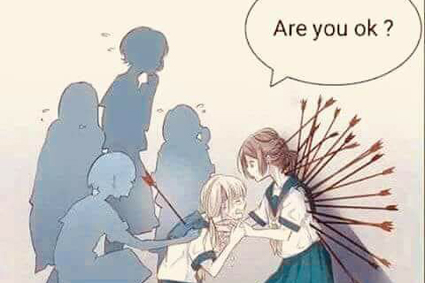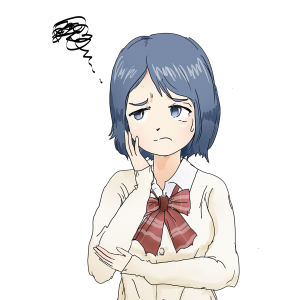Helperitis (help-er-i-tis)—One who helps others at the expense of their own needs, health, or wellbeing.
This is a word I created while trying to explain a ‘way of being’ to my husband. I was looking at my own personal challenge of being someone who helps too much. ‘Helper’ is obvious, but ‘itis’ refers to causing pain or inflammation to oneself.

Some (but perhaps not all) of the links in this blog are affiliate links to Amazon. As an Amazon Associate, I earn from qualifying purchases. This page contains some affiliate links. Please see my policy page for details. I look for the best possible option for your convenience, however, I encourage you to support your local shops!
I have seen this personality trait not only in myself, but in many individuals who work in the helping field, who dedicate themselves to their work, their family, or who volunteer their time to help others. These are the people you can always count on, the ones who are always there to help—no matter what.
On the outside, this sort of person appears altruistic and virtuous—and in many cases, this is so. The problem, however, for some, is when they serve others from a place of a wounded self, rather than from a true altruistic state—when they continuously put the needs of others before themselves, even at the expense of their own physical, emotional or spiritual well-being.
Individuals with helperitis will overgive by not charging enough (or at all) for their work or services, they will give more time to their clients than agreed upon, they have a hard time saying no to anyone or anything, and they will do whatever they can to accommodate others. Those with helperitis will patiently and compassionately listen to others’ problems (sometimes for hours), without speaking of their own problems. These people will hide their own suffering and help others in spite of the struggles they are having in their own lives.
They experience burnout from pushing themselves to a breaking point—but will continue to serve anyways! Even if their body says no and they can’t actually serve, they will experience deep guilt and anxiety for not being able to help. What if something happens to the person they’ve said no to? What if that person experiences suffering because the ‘helper’ wasn’t there to help?

There is a significant difference between people who serve from an altruistic state and those who serve from a wounded self. Those serving from the latter are looking to fulfill unmet needs within themselves and those needs may look like this:
- A need to feel accepted
- A need to feel loved
- A need to feel worthy
- A need to feel purposeful
- A need to be in control (to keep their environment safe)
Those with helperitis may also be highly sensitive, overly empathetic, have a martyr personality, and have a hard time receiving help from others. They feel like they have to do it all. They can even develop a certain level of resentment for being the ‘responsible one’ but are so set in this way of being, they don’t know how to change it.
If you see yourself in any of these traits, it may be hard to accept this truth. But recognizing this can be an opportunity to find healing—true healing, on a very deep level. When we put the needs of others before ourselves, we may be wanting to avoid these inner wounds. Serving in the guise of altruism may be a scapegoat for avoiding our own pain.
In my experience, individuals suffering from helperitis are more common than one would think. Part of the problem is that it is socially admirable to be this way—it is encouraged. Taking care of oneself, putting one’s needs first is considered selfish, and those who dare take time out to meet their own needs can be harshly judged. Going back to that list of unmet needs, it can be an impossible task for those with helperitis to escape this pattern.

One becomes separated from the source of all these unmet needs, and that Source is our Higher Self, God, Divine Spirit…there are many names for the same Source.
So, what can one do? The most important part is to recognize this pattern in oneself. Then, take gentle steps towards healing these unmet needs and finding a connection back to one’s true self. Unmet needs are most often deeply rooted in adverse childhood experiences, so you would want to look at healing the experiences that set these patterns and needs in place. We need to learn to fall back in love with ourselves…not the constructed and conditioned self of ego…but the true self that is waiting for us below all the ‘crap’.
One of the most powerful healing tools I’ve come across is EFT Tapping. You can read more about it here. Tapping is a powerful tool that you can use yourself to help clear these negative experiences and begin to heal your unmet needs.
I have also created a self-paced course on Udemy called EFT Tapping for Personal Peace. This course teaches you all about tapping and how to use it in a methodical way to work through negative events in your life. You can check it out here.
The Emotion Code by Bradley Nelson is a very effective tool to help identify trapped emotions and remove them with a simple process.
Also, if you are an empath, learning to be an empowered empath is essential. I highly recommend the work of Judith Orloff, she has some great offerings on her website. I also recommend the work of Wendy DeRosa. She offers all sorts of courses on learning how to move from being ‘overly empathic’, to becoming an empowered empath.
Finding a spiritual practice that can help you connect to your deeper, true Self is part of this healing process. There are so many wonderful teachers such as Eckhart Tolle, Joel Goldsmith, Carolyn Myss, Marianne Williamson, Steve Taylor and so many more. We are living in a time where infinite resources are available to us, so explore some of these people and see if any speak to your heart.
There is no quick fix to this—it can be a challenging journey. It will take time and dedication, and you may already be working on your healing journey. I offer these tools (as a helper) because I know them to be very effective.

How this unfolded for me is that I came to realize I had been a helper for most of my life. I had been the mediator/counselor in my family and in all sorts of situations. As the one who always came to the rescue of others, I was the one who could always be relied upon and freely offered help and advice, even if not wanted.
After working in the helping field as a pharmacy technician for 25 years, I stepped into my husbands’ irrigation business when he got cancer and then trained as an EFT Practitioner and set up my own practice. This (and much more), is what I was doing while suffering from chronic fatigue syndrome, fibromyalgia, irritable larynx syndrome, central sensitivity disorder, and various ailments.
As I unfurled myself from these patterns and started to remove the arrows from my own back, I began to hear a very faint voice calling me to do creative work. When I heard this voice, my heart would flutter. But it took some time to allow myself to consider doing work that would be joyful and make me happy. Eventually, the voice was so clear and pure that my only choice was to give up my EFT practice and move into doing creative work.
I also stepped back from being the ‘helper’ and started to say no more often. I could see where my patterns were strong and worked to release them as best as I could. I’m still figuring this stuff out, but I’m in a good place. I’m grateful that tapping has helped me release so much negativity from my life, and I’m also grateful that I have learned to manage my empathetic nature.
If you identify with Helperitis-The Act of Helping Too Much, then I share these reflections and tools with hopes that others can benefit from them too!